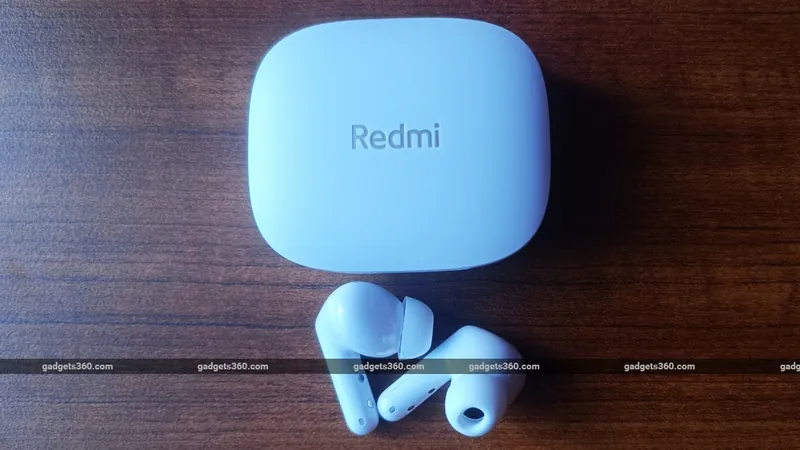
Is Google’s RCS Dream Over? Why Switching Messaging Apps is Crucial Now!
2024-12-09
Author: Jacob
Introduction
In a shocking turn of events, Google's ambitious vision for seamless messaging has hit a major snag. Following a recent FBI warning about the risks of using unencrypted messaging methods, concerns have swelled over the security of Rich Communication Services (RCS) when it comes to interactions between Android and iPhone users. As tech enthusiasts and everyday users alike digest this alarming news, the question emerges: Are we witnessing the downfall of Google Messages?
The Initial Acceptance of RCS
The drama began when Apple finally accepted RCS into its ecosystem with the launch of iOS 18, a move initially celebrated by Google. But the well-intentioned update quickly met criticism, emphasizing significant vulnerabilities in security, particularly the lack of end-to-end encryption for RCS as opposed to iMessage’s robust safeguards. Despite undergoing an extensive campaign advocating for this upgrade, Google now finds itself scrambling to address the fallout.
Threats from State-Sponsored Hackers
Complicating matters, state-backed hackers from China have reportedly infiltrated US telecom networks, a situation that underscores the necessity of end-to-end encryption—something that is noticeably absent in RCS messaging. Both the FBI and the Cybersecurity and Infrastructure Security Agency (CISA) urge users to switch to platforms that offer “responsibly encrypted” options, casting a pall over cross-platform messaging just as RCS was intended to unite users.
The Contrast with iMessage
Apple has always clarified that iMessage operates securely within its 'walled garden,' contrasting Google’s push for universal connectivity. With recent developments shaking confidence in RCS messaging, Google is left with lots of questions and expectations to fulfill. Specifically, how soon can RCS be upgraded to meet the government’s encryption standards? And can users be persuaded to still use RCS/SMS when cross-platform messaging invites increased risk?
Changing Messaging Preferences
Adding to Google's woes is Apple’s forthcoming iPhone update, iOS 18.2, which now allows users to customize their default messaging and calling apps. This pivotal change enables users to opt for alternatives like WhatsApp or Signal, highlighting the rapid evolution of messaging preferences.
Competition from Secure Alternatives
Despite Google’s desires for RCS to become the go-to messaging solution, things appear less favorable with competition from platforms like WhatsApp and Facebook Messenger—both of which deliver robust end-to-end encryption, even if they don’t align perfectly with the FBI's requirements for lawful access.
Urgent Call to Action for Users
For users still defaulting to Google Messages, the need for a different messaging app has never been more pressing. Those who haven’t yet downloaded secure alternatives like WhatsApp, Signal, or Messenger should do so immediately. Among these, WhatsApp is emerging as the preferred choice, balancing a user-friendly experience with strong security measures and widespread adoption.
Implementing Security Measures
To truly protect your conversations, however, it’s essential to implement two critical security measures: activate two-factor authentication and remain vigilant against phishing attempts that could compromise your device. Should malware take control of your phone or deceive you into installing malicious apps, your messages may end up vulnerable regardless of the platform used.
Samsung's Shift
In an ironic twist, Samsung has announced it will cease support for RCS in its Samsung Messages app, effectively redirecting users to Google Messages if they wish to maintain advanced features like read receipts and high-quality media sharing. With Samsung's pivot towards Google Messages, one wonders if this marks a shift in the Android ecosystem towards dependency on Google's tools.
Conclusion
The Federal Bureau of Investigation's warnings serve as a stark reminder of just how critical encryption has become in an increasingly digital world. As technology companies promote different messaging protocols, the need to choose correctly for privacy and security has never been more urgent. Google’s efforts to propel RCS forward might have swiftly unraveled due to external vulnerabilities and internal confusion, leaving its future uncertain.









 Brasil (PT)
Brasil (PT)
 Canada (EN)
Canada (EN)
 Chile (ES)
Chile (ES)
 España (ES)
España (ES)
 France (FR)
France (FR)
 Hong Kong (EN)
Hong Kong (EN)
 Italia (IT)
Italia (IT)
 日本 (JA)
日本 (JA)
 Magyarország (HU)
Magyarország (HU)
 Norge (NO)
Norge (NO)
 Polska (PL)
Polska (PL)
 Schweiz (DE)
Schweiz (DE)
 Singapore (EN)
Singapore (EN)
 Sverige (SV)
Sverige (SV)
 Suomi (FI)
Suomi (FI)
 Türkiye (TR)
Türkiye (TR)